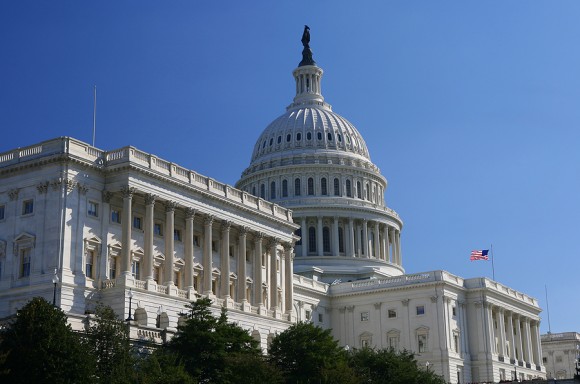Lobbyists for insurers, real estate financiers and businesses launched into action last week to urge quick renewal of a terrorism insurance program in 2015 after U.S. lawmakers left it to expire at the end of this year.
Industry officials said they were stunned when the Senate abruptly decided last Tuesday night to leave Washington without approving a bill to give the program six more years.
That means the program, established after the Sept. 11, 2001 attacks to encourage insurers to offer coverage for assaults on office buildings, malls and sports stadiums, ends on Dec. 31.
The program has enabled developers of large projects such as shopping malls to build and gain coverage at lower costs.
Industry trade groups and state regulators said they held conference calls this week to consider how the lapse could affect businesses and local economies.
And lobbyists scrambled to ensure the program would be high on the agenda when Congress re-opens on Jan. 6.
“There will not be a member of Congress that doesn’t continue to hear the importance of this,” said Jimi Grande of the National Association of Mutual Insurance Companies.
The terrorism program creates a federal backstop in case insurers lose a certain amount of money in a terrorist attack. It has been reauthorized twice but has never been triggered.
Conservatives want the private market to take over terrorism insurance, but observers believed it would be reauthorized after negotiators agreed to double the trigger to $200 million.
Then lawmakers balked over unrelated provisions. The last straw appeared to be U.S. Senator Tom Coburn of Oklahoma, who held up the legislation because it would allow agents to sell insurance across state lines.
“I was, honest to say, shocked” the bill did not pass, said Howard Mills, chief adviser in Deloitte’s insurance group.
State insurance regulators said during a conference call on Thursday that they had not seen disruptions in their markets but had been asked what happens next.
Ben Walter, chief executive of insurer Hiscox USA, said he met with House Financial Services Committee Chairman Jeb Hensarling months ago and would return if needed.
“It would be fine if Congress felt the need to reform the program,” Walter said. “The problem is we’ve just had the carpet ripped out from under us. And that’s not exactly a model for smooth, functioning financial markets.”
(Reporting by Emily Stephenson; Editing by Caren Bohan and)
Was this article valuable?
Here are more articles you may enjoy.



 State Farm Adjuster’s Opinion Does Not Override Policy Exclusion in MS Sewage Backup
State Farm Adjuster’s Opinion Does Not Override Policy Exclusion in MS Sewage Backup  Judge Tosses Buffalo Wild Wings Lawsuit That Has ‘No Meat on Its Bones’
Judge Tosses Buffalo Wild Wings Lawsuit That Has ‘No Meat on Its Bones’  Florida Engineers: Winds Under 110 mph Simply Do Not Damage Concrete Tiles
Florida Engineers: Winds Under 110 mph Simply Do Not Damage Concrete Tiles  Zurich Insurance Profit Beats Estimates as CEO Eyes Beazley
Zurich Insurance Profit Beats Estimates as CEO Eyes Beazley 

